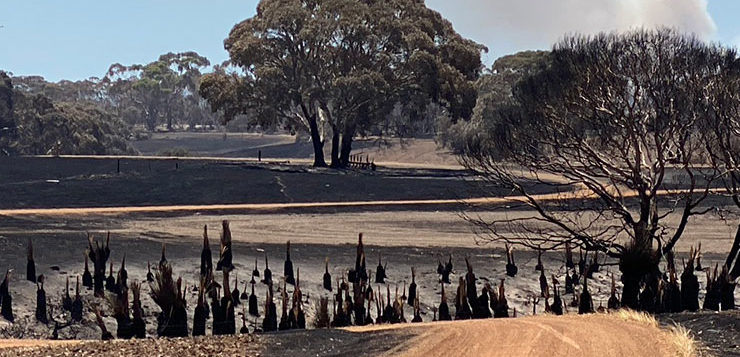DON’T MISS ANYTHING! ONE CLICK TO GET NEW MATILDA DELIVERED DIRECT TO YOUR INBOX, FREE!
There’s a lot to be proud of on the left of politics, writes Associate Professor George Morgan. But how we’ve confronted the politics of climate change is not one of them.
‘When’s the next election,’ someone Tweets.
‘Why, are you optimistic?’
‘Sure,’ comes the answer from my social media echo chamber. ‘#ScottyFromMarketing – aka Scott Morrison the Australian Prime Minister – has gone too far this time. The people can’t wait to turf him out.’
Look at him! While the country burns, he’s photographed lounging in a deck chair in Hawaii, and then hosting a garden party for cricketers at his Sydney harbour-side residence of Kirribilli House. Sure, public opinion eventually wrenched him away from his denialist Summer holiday, and forced him to tour the fire grounds. But the people hate him. News footage shows victims and firefighters refusing to shake his coal-stained hand.
‘Game’s up ScoMo’ cry the Twitterati ‘the lessons of the fires are obvious’. We need to stop mining coal and gas, close coal-fired power stations, move to low-carbon lifestyles. The environment should be at the centre of political life, not the economy.
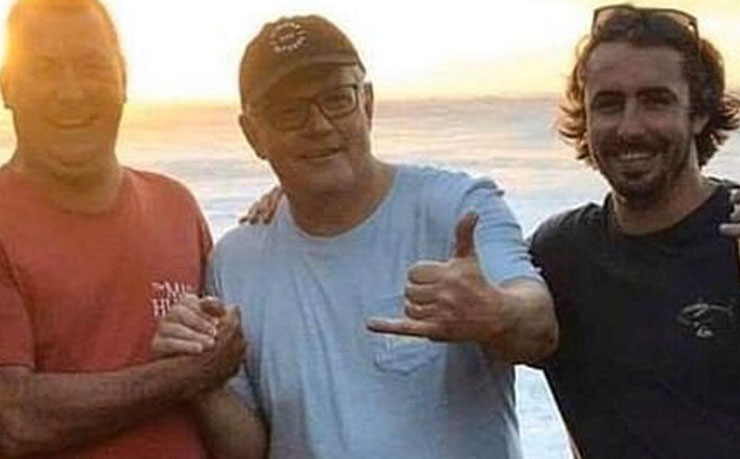
As smoke fills the sky, surely these things will be obvious to the electorate, even those who voted for Morrison’s government in last year’s general election.
But we should be careful in this thinking. All too often those of us on the left assume our view of reality is so compelling that it will inevitably persuade the wider public.
While working-class people may share our indignation about the political response to the bushfires – most are appalled at the Prime Minister’s lack of leadership – this doesn’t mean they will read the charred landscape as an allegory of environmental hubris.
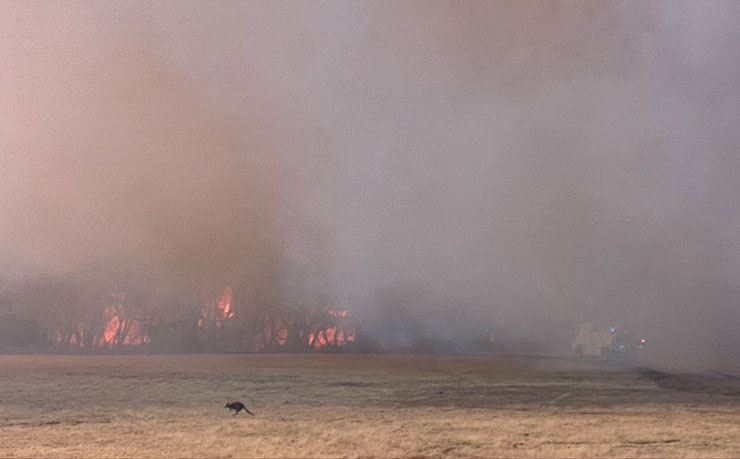
Environmental crisis doesn’t necessarily prevent voters from electing environmental vandals. Trump won on a mining and gas-guzzling platform in spite of extreme weather events like Hurricane Katrina. Brazilians elected Bolsonaro even though it was clear he would destroy the Amazon basin. In electing Boris Johnson, the Brits rejected Jeremy Corbyn’s Green New Deal.
The left typically responds to such results at first with brooding bewilderment, and then with righteous fulmination: What were the voters thinking? Are they so brainwashed by the press barons and fake news, that they vote against their interests? Are they so ill-educated they don’t they realise the mendacious jerk they’ve elected will make them poorer and screw the planet at the same time?
But to view working class conservative voters as stupid or brainwashed is to deny them a separate political rationality grounded in personal stories and struggles. It perpetuates the rationalist illusion that we, the chattering classes, just need to improve the way we communicate our ideas to them.
This was Guardian columnist George Monbiot’s main interpretation of Corbyn’s defeat: future elections will be fought on social media and we need to be more effective and strategic in this sphere. This is comforting because it allows us to remain stitched into our inner-city bubbles, avoiding the troubling social encounters through which a deeper political understanding is forged.
To build electoral majorities we need to move away from the fast politics of election campaigns to a slow politics based on charting popular common sense.
You can’t fatten a pig on market day, as John Howard, Australia’s most electorally successful Prime Minister in recent history, once said.
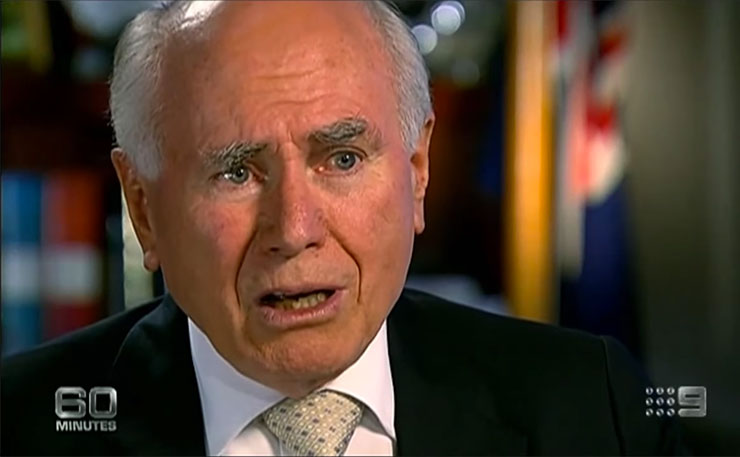
While in the United States, there is an emerging literature based on rustbelt ethnography, in Australia we have nothing equivalent. Books like Joe Bageant’s Deer Hunting with Jesus, J.D. Vance’s Hillbilly Elegy and Arlie Hochschild’s Strangers in their Own Land, chart the contours of popular common sense in America and identify why Trump is better at engaging with it that the urban left.
I have no special knowledge but here are some suggestions/observations about green left politics.
Firstly, we need to jettison the language of lifestyle environmentalism. Global warming will not be stopped by individual consumption choices and low-carbon living can be expensive.
In Australia, if the only dwelling your family can afford is a suburban house located miles from a train station, try living without a car, or air conditioning in Summer.
Secondly, to people who labour with their hands, the idea that modernity and economic growth is bad, and should be reversed, will never gain traction. Many 20th century immigrants, for example, came to Australia from southern Europe, the Middle East or south east Asia, to escape rural poverty and incessant toil.
Romanticising nature is a luxury that only those who live at safe distance from it can afford.
Thirdly, and most importantly, environmentalism must be able to offer meaningful work to those left behind. To persuade residents of rustbelt regional towns they are better off without the local mine, you must offer genuine alternative jobs, not vague promises about tending windmills and solar panels.
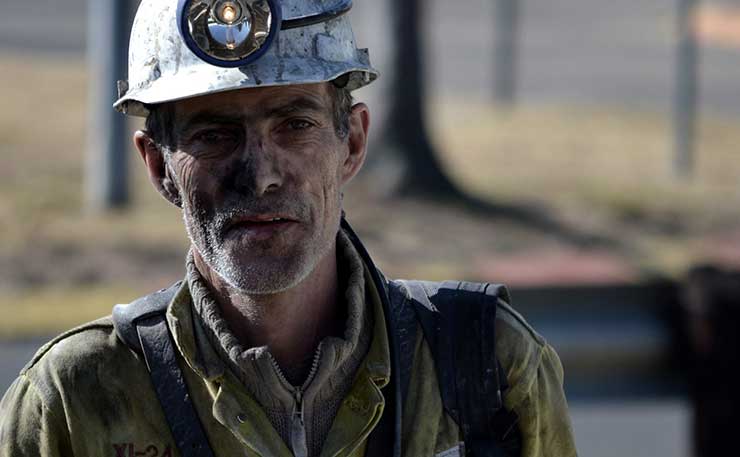
To most struggling workers, environmentalism sounds like sanctimonious hectoring of the urban elite, who, having reaped the benefits of modernity, now want to pull the ladder up.
For 40 years, their response has been the same: while you protest, we roll our sleeves up and work hard. You have million-dollar inner-city homes and we struggle to feed our kids.
So, I’m not arguing for opening more coal mines or building more freeways. Stopping global warming is the primary political and ethical challenge or our time.
But I would say this to Labor leader Anthony Albanese, as he travels around the country on his ‘listening tours’, a man who habitually reserves as much scorn for the Greens in Australia, as for the conservative government: your challenge is to articulate an authentic working-class ecological politics, something that would allow you to oppose Adani but still win an election; something that would allow you to fight the fossil fuel industry head-on.
Good luck with that.
BE PART OF THE SOLUTION: WE NEED YOUR HELP TO KEEP NEW MATILDA ALIVE. Click here to chip in through Paypal, or you can click here to access our GoFundMe campaign.
Donate To New Matilda
New Matilda is a small, independent media outlet. We survive through reader contributions, and never losing a lawsuit. If you got something from this article, giving something back helps us to continue speaking truth to power. Every little bit counts.

